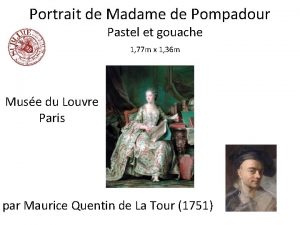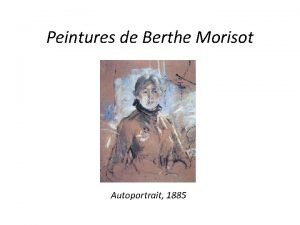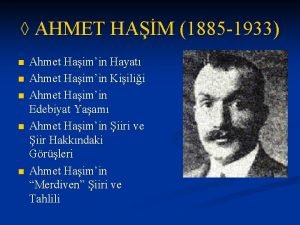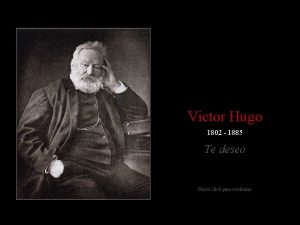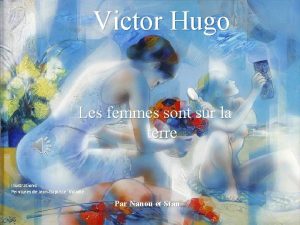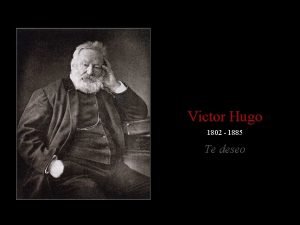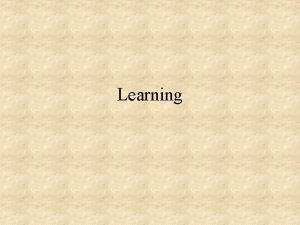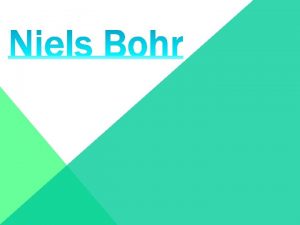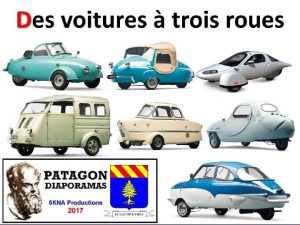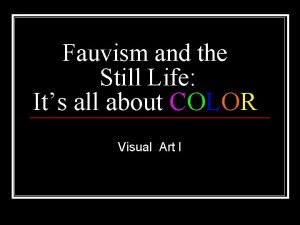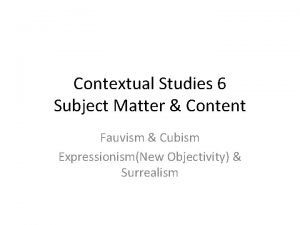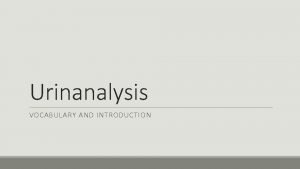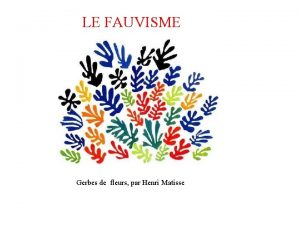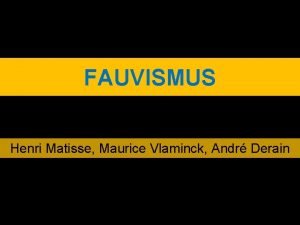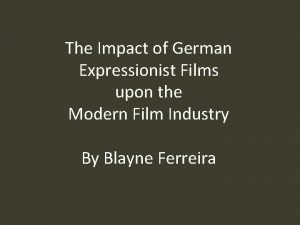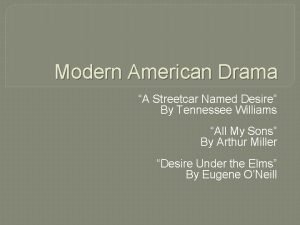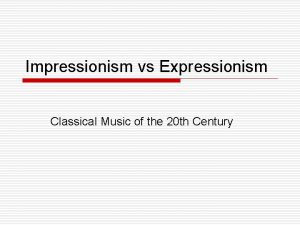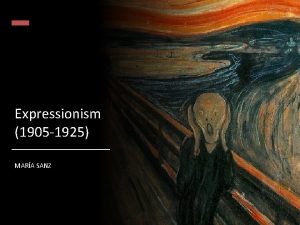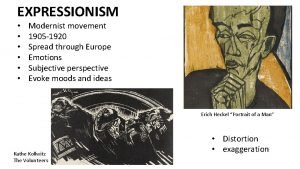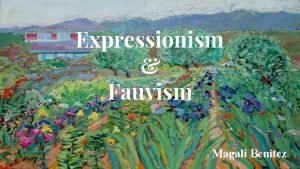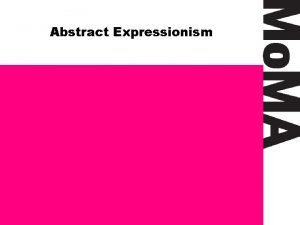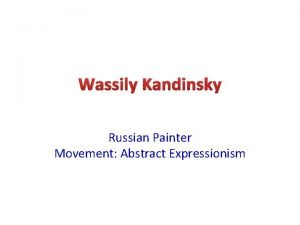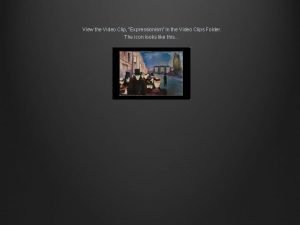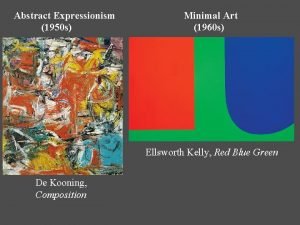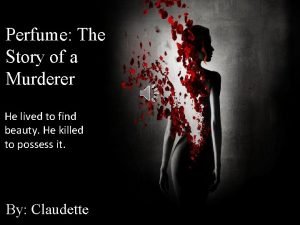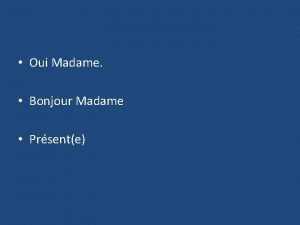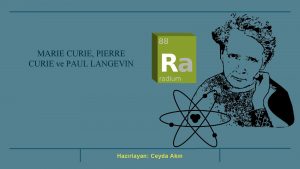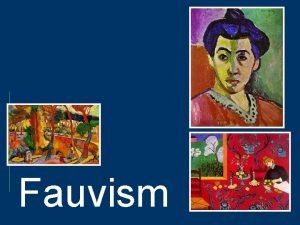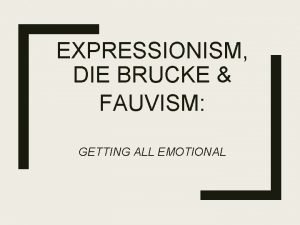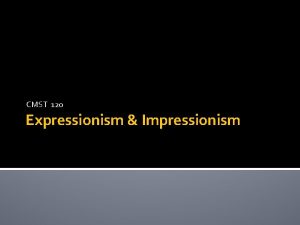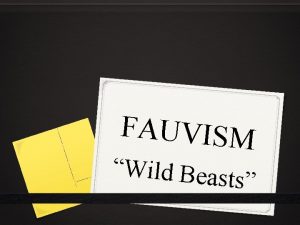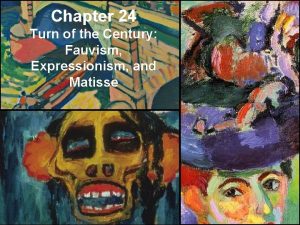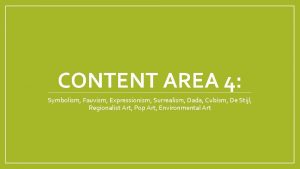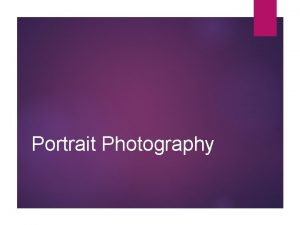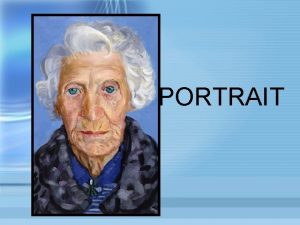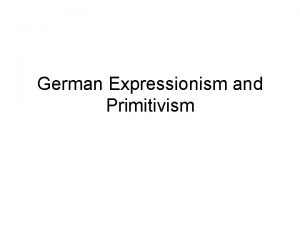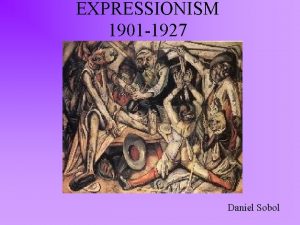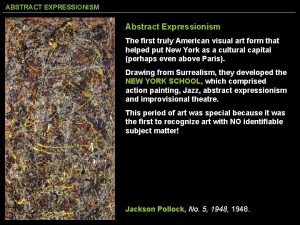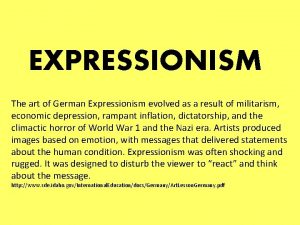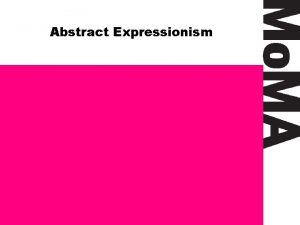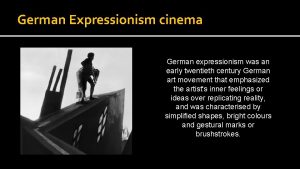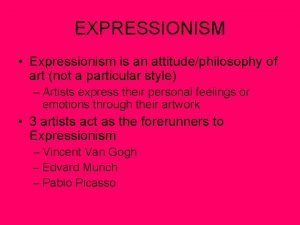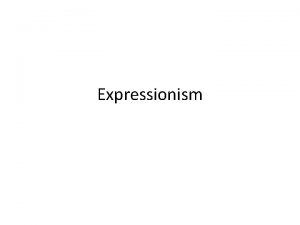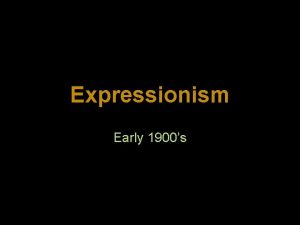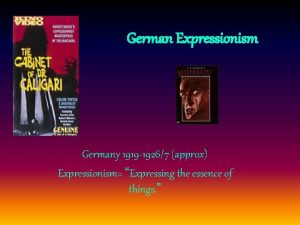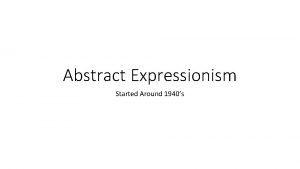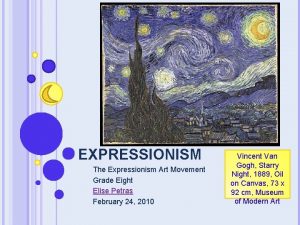Fauvism and Expressionism 1885 1910 Portrait of Madame

































- Slides: 33

Fauvism and Expressionism 1885 -1910 Portrait of Madame Matisse (The Green Line) 1905 Oil and Tempera on Canvas 40. 5 x 32. 5 inches

Impressionism (1865– 1885) Capturing fleeting effects of natural light Monet, Manet, Renoir, Pissarro, Cassatt, Morisot, Degas Franco-Prussian War (1870– 1871); Unification of Germany (1871) Post. Impressionism (1885– 1910) A soft revolt against Impressionism Van Gogh, Gauguin, Cézanne, Seurat Belle Époque (late-19 th-century Golden Age); Japan defeats Russia (1905) Fauvism and Expressionism (1900– 1935) Harsh colors and flat surfaces (Fauvism); emotion distorting form Matisse, Kirchner, Kandinsky, Marc Boxer Rebellion in China (1900); World War (1914– 1918) Cubism, Futurism, Supremativism, Constructivism, De Stijl (1905– 1920) Pre– and Post–World War 1 art experiments: new forms to express modern life Picasso, Braque, Leger, Boccioni, Severini, Malevich Russian Revolution (1917); American women franchised (1920) Dada and Surrealism (1917– 1950) Ridiculous art; painting dreamsand exploring the unconscious Duchamp, Dalí, Ernst, Magritte, de Chirico, Kahlo Disillusionment after World War I; The Great Depression (1929– 1938); World War II (1939– 1945) and Nazi horrors; atomic bombs dropped on Japan (1945)

Key Points: ● Both movements were all about feelings- very intense and emotional ● It’s a philosophy of art not a style ● Exploding color! ● Avante-garde ● Fauvism was very short lived (1904 -1908) ● Started in Paris and picked up by a group of German artists who called themselves Die Brucke (The Bridge) and Der Blaue Reiter (The Blue Rider) ● Expressionism (the term) was coined in 1911 to describe an exhibition of Fauves.

Who's Who? ● The Fauves- intense bright, clashing colors; distorted forms and perspectives; vigorous brushstrokes; flat linear patterns; bare canvas as part of the overall design. Translation "Wild Beasts" o Henri Matisse o Andre Derain (duh REN) ● The Expressionists- emotional angst, violent colors, abstract forms and emotional subjects; attempt to express the contemporary mind. o Edvard Munch o Matisse (yup. . . he was both) o Wassily Kandinsky o Henri Rousseau

Henri Matisse (1869 -1954) ● He suffered a bout of appendicitis as a child and his mother gave him a box of paints. He later said, “From the moment I held the box of colors in my hands, I knew this was my life. I threw myself into it like a beast that plunges towards the thing it loves. ” ● Painted traditional themes (nudes, landscapes, portraits and still life) but with exaggerated, vibrant colors. ● He tried painting with Seurat's Pointillism, but found it tedious- dab, dab. ● Known for bright colors, cut out paper images, and lots of energy in his works. ● At the end of his life, when he was ill, he would draw and paint from his bed with a pencil or brush attached to a long stick.

Luxury, Serenity and Pleasure (Luxe, Calme at Volupe 1904 98 x 118 cm Oil on canvas

The Joy of Life 1905 -06 175 x 241 cm Oil on Canvas "My choice of colors does not rest on any scientific theory; it is based on observation, on sensitivity, on felt experience. " – Henri Matisse

Andre Derain (1880 -1954) ● French artist, painter, sculptor and co-founder of Fauvism with Henri Matisse. ● Father was a pastry chef- middle class. Lived in Paris. ● Hated school. ● Good friends with Matisse. ● Used Pointillism early in his career, truly embraced Fauvism. COLOR!

van Gogh's Fishing Boats, 1905, Oil on Canvas, 15 1/8 x 18 1/4 in

Charring Cross Bridge 1905 -06, Oil on Canvas 32 1/8 x 39 5/8"

Madame Derain in Green 1907 Oil on Canvas 28 3/4 x 23 5/8"

Expressionism ● Weird and wacky ● Communicating their inner visiondistorted! ● Munch, Rousseau and Kandinsky Edvard Munch The Scream 1893 Oil, tempera, and pastel on cardboard

Edvard Munch (1863 -1944) ● Norwegian painter and ● ● printmaker Intensely evocative treatment of psychological themes Born in Norway in 1863 His mother and sister died of tuberculosis when he was very young. Painted all his life

Anxiety 1894

Melancholy 1894

The Dance of Life 1899

Wassily Kandinsky (1866 -1944) ● Wassilyevich Kandinsky was an influential Russian painter and art theorist. ● He is credited with painting the first purely abstract works. Non-objective ● At first painted only in black and white. ● Influential member of The Blue Rider group. ● Inspired by music!

Horses 1909


"Study to "Composition II"" 1910 Oil on Canvas 97, 5 х130, 5 sm

"Composition VIII". 1923 Oil on canvas New York, The Solomon R. Guggenheim Museum

"Composition X". 1939 Dusseldorf, Kunstsammlung Nordrhein-Westfalen, Germany

Pablo Picasso ● Early work is extremly expressive ● Blue period ● Poor and homeless

Henri Rousseau (1844 -1910) ● Considered by some to be a Post-Impressionist ● French painter ● Worked in a toll booth. ● Painted exotic jungle scenes but never in fact left France. ● His style is considered "primitive. "

Henri Rousseau, Tropical Forest with Monkeys, 1910, National Gallery of Art, John Hay Whitney Collection Rousseau visited the zoos and botanical gardens in Paris to sketch and get inspiration.

Henri Rousseau, The Equatorial Jungle, 1909, National Gallery of Art, Chester Dale Collection

Sleeping Gypsy 1897 Oil on Canvas

The Dream 1910 (160 Kb); Oil on canvas, 6' 8 1/2" x 9' 9 1/2"; The Museum of Modern Art, New York

Marc Chagall (1887 -1985) ● Russian artist ● Worked in many mediums ● 1906 moved to St Petersburg to study art ● 1910 moved to Paris ● Influenced by Fauvism, Expressionism and Cubism ● Dreamlike paintings

Self Portrait with Seven Fingers 1913 Oil on canvas

I and the Village 1911 Oil

Paris Through Window 1913 Oil

http: //www. henri-matisse. net/photographs. html http: //www. henri-matisse. net/ http: //www. biography. com/people/henri-matisse-9402564 http: //www. artchive. com/artchive/D/derain. html http: //www. edvardmunch. org/ http: //www. wassilykandinsky. net/
 Portrait de madame de pompadour
Portrait de madame de pompadour Expressionist vs impressionist
Expressionist vs impressionist Autoportrait berthe morisot
Autoportrait berthe morisot “afrique carving” a french caricature from 1885.
“afrique carving” a french caricature from 1885. Ahmet haşim (1885 - 1933)
Ahmet haşim (1885 - 1933) Victor hugo (1802-1885)
Victor hugo (1802-1885) Impressionism (1865–1885)
Impressionism (1865–1885) Les femmes sont sur la terre... victor hugo (1802-1885) ...
Les femmes sont sur la terre... victor hugo (1802-1885) ... Victor hugo desejo
Victor hugo desejo Ebbinghaus 1885
Ebbinghaus 1885 7 octobre 1885
7 octobre 1885 Mini comtesse peugeot 1980
Mini comtesse peugeot 1980 Art history impressionism
Art history impressionism Fauve still life
Fauve still life Cubism subject matter
Cubism subject matter Fauvism pronunciation
Fauvism pronunciation Matisse fleur
Matisse fleur Henri matisse tanec
Henri matisse tanec Fauvism pronunciation
Fauvism pronunciation Blade runner german expressionism
Blade runner german expressionism Define plastic theatre
Define plastic theatre Sunken cathedral jazz
Sunken cathedral jazz Mesaj expresionist apelativ
Mesaj expresionist apelativ Expressionism death of a salesman
Expressionism death of a salesman Die brucke manifesto
Die brucke manifesto Magali benitez
Magali benitez Expressionist sculpture
Expressionist sculpture Where did wassily kandinsky grow up
Where did wassily kandinsky grow up Fine arts video
Fine arts video Minimal art 1960
Minimal art 1960 Paulo roberto gaefke wikipédia
Paulo roberto gaefke wikipédia Oui je suis bien
Oui je suis bien Bom dia madame
Bom dia madame Madame curie paul langevin
Madame curie paul langevin
